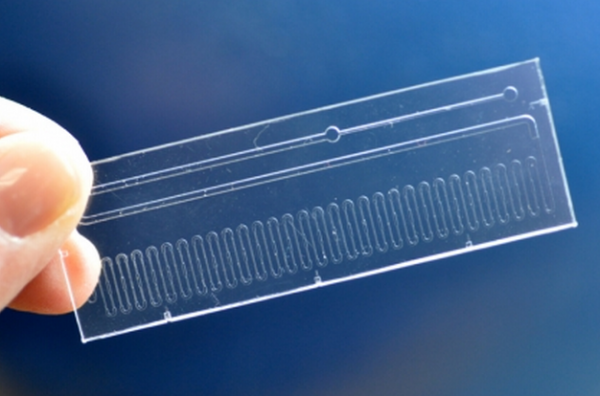In the year of 2009, the H1N1 flu pandemic propagated across more than 200 countries and killed more than 18,000 people. How it extended so many countries and killed massive people within a very short time, that was a question. The reason found, flu diagnosis was often taking too long and resulting in frequent false negatives. Now, after the 4 year study of researchers from Boston University, Harvard, and the Beth Israel Deaconess Medical Center, they claim that, they have built a microfluidic chip that rivals in accuracy the gold-standard diagnostic test known as Reverse Transcription-Polymerase Chain Reaction (RT-PCR). This RT-PCR is faster, cheaper, accurate and disposable.
The researchers 4 year study was based on 146 patients with flu like symptoms. This research was funded by the National Institutes of Health. Researchers miniaturized the RT-PCR test into a chip. The size of the chip was alike the size of a standard microscope slide. Researchers analyzed 2 types of nasal specimens accurately.
About The Microfluidic Chip :
The chip is made of a top column which extracts Ribo-Nucleic Acid (RNA) from signature proteins associated with the influenza A virus. There is a middle chamber that converts the RNA into Deoxyribo-Nucleic Acid (DNA). A climate-controlled lower channel replicates the DNA for long time to be detected by an external reader.
“We wanted to show that our technique was feasible on real-world samples,” associate professor Catherine Klapperich said in a news release. “Making each chip single-use decreases the possibility of cross-contamination between specimens, and the chip’s small size makes it a good candidate for true point-of-care testing. The new test represents a major improvement over viral culture in terms of turn-around time, over rapid immunoassay tests in terms of … the ability to detect the virus from minimal sample material, and over DFA and RT-PCR in terms of ease of use and portability.”
The researchers team found that their chip exceeded other common flu diagnostic tests, including viral culture, rapid immunoassays and direct fluorescent antibody (DFA) testing. Now the team is working on further improvement of the chip. This microfluidic chip costs $5 and can provide accurate result in an hour. It is being expected that, this faster affordable test with perfect accuracy could help stem outbreaks and save human lives.
Source : Science Daily
[ttjad]


